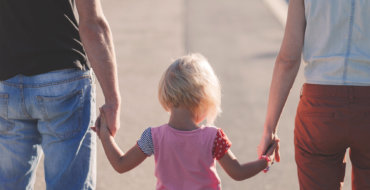What to do if you notice your child developing a bad habit.
Doesn’t everyone possess some sort of idiosyncrasy they consider a “bad habit?” Many bad habits stem and develop during childhood. What do you do if you notice your child starting to pick up one? From swearing, to fidgeting, to picking your nose, it can be easier said than done to stop a bad habit on the front end before it becomes routine.
While many childhood habits are harmless, some could affect your child emotionally or socially in the long run. Here are some steps on how to help correct your child’s bad habit.
Identify the problem
First, determine the trigger. If your child bites or hits, they may not know how to verbally express their emotions. If your child is having trouble falling asleep, they may turn to thumb sucking to help them feel more secure. Investigate the root of the problem by closely observing your child’s behaviors. Are they nervous? Anxious? Do you need to contact a pediatrician? Ask your child questions. They will tell you more than you might think.
Offer a better alternative
Once you understand why your child turns to their habit, you can offer something better for them to do. Find a new habit that provides a similar benefit. If your child reacts to stress by picking at their nails, buy them a stress ball to help them cope with their nerves. If your child is head-banging to relax, a rocking chair may be a good investment to put them at ease. As long as the substitute benefits your child, you’ll find endless possibilities for alternatives to bad habits.
Motivate and reward for better behavior
Lastly, praise is an especially good reinforcement for changed behavior – just remember to praise actions rather than using general statements like “good girl” or “good boy.”
Also reward self-control. For example, allow your little girl to use nail polish if she lets her nails grow. Or every time your son refrains from sucking his thumb, reinforce the positive behavior by praising him and giving him a sticker or other small prize, according to KidsHealth.






